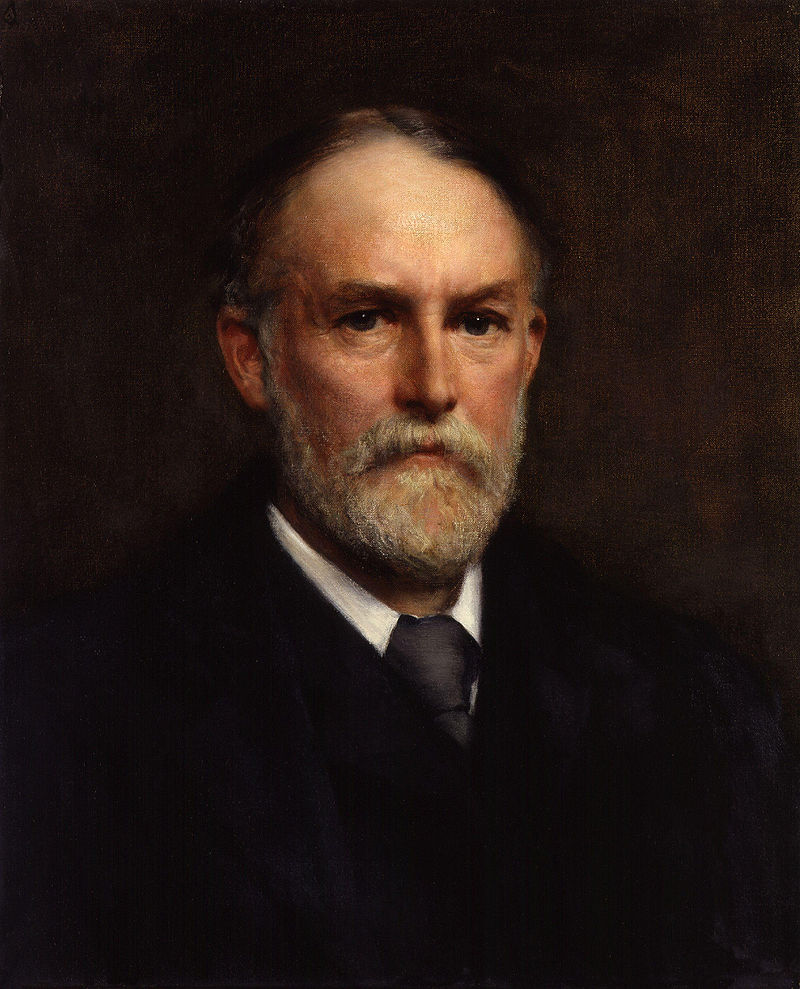Frederic William Henry Myers (6 February 1843 – 17 January 1901) was an English poet, classics scholar, and a founder member of the Society for Psychical ResearchRegistered charity founded in 1882 to conduct scientific investigations into psychic and paranormal phenomena.Registered charity founded in 1882 to conduct scientific investigations into psychic and paranormal phenomena.. He introduced a specialist vocabulary for psychical research, coining the term “telepathy”, and developed a theory to unify the findings of psychical research with discoveries in psychopathology and hypnotism.[1] His work on psychic phenomena and his ideas of a “subliminal self” were influential in their time, but are now largely discounted.[2][3]
Myers was born to the Church of England clergyman Frederic Myers (1811–1851) and his second wife Susan Harriet Myers née Marshall (1811–1896), a daughter of the wealthy Yorkshire industrialist John Marshall (1765–1845).[1]
Early life
Following her husband’s death in 1851, Susan and her three sons moved to Blackheath in Kent, where the young Myers attend a preparatory school. Five years later the family moved to Cheltenham, where Susan enrolled her sons as day boys at Cheltenham College. Myers went up to Trinity College, Cambridge in 1860, receiving his BA in 1864 and his MA in 1867. His university career was “outstandingly successful”; he won two university scholarships, the Bell and the Craven, the Camden Medal for Latin verse, and the chancellor’s medal for English verse twice. But his “overweening conceit” led to accusations of plagiarism in his entry for the Camden Medal in 1863,[a]Myers had previously won the Camden Medal in 1862.[1] which he was forced to resign as a result, significantly damaging his reputation. He was a Fellow of Trinity College from 1865 to 1874 and college lecturer in classics from 1865 to 1869. In 1872 he became an inspector of schools.[1]
Personal life
As a young man Myers had been involved in homosexual relationships with Arthur Sidgwick, the poet John Addington Symonds,[4] and possibly the Liberal politician Lord Battersea.[5] He later fell in love with Annie Eliza Hill, the wife of his cousin Walter James Marshall. The nature of Myers’ relationship with his cousin’s wife has been the subject of debate among researchers, but whether or not it was ever consummated Annie remained a significant influence in Myers’ life, even after her death by drowning in 1876.[6]
The writer on the occult Richard Cavendish has commented: “According to his own statement, he [Myers] had very strong sexual inclinations, which he indulged. These would seem to have been mainly homosexual in his youth, but in later life he was said to be wholly heterosexual.”[7] The English author on the paranormal, Ronald Pearsall, has suggested that Myers had a sexual interest in young lady mediums, writing “[I]t is certainly true that Myers’s interest in young lady mediums was not solely due to their spiritualistic talents.”[8] The academic and biographer Bart Schultz wrote that “Myers was suspected of all manner of sexual quirks and it was alleged that he looked upon psychical research as giving him opportunities for voyeurism.” He also noted Myers’ odd behaviour, such as insisting on accompanying his friend and colleague Edmund Gurney and his bride on their honeymoon, despite strong protests from the bride.[9] But the biographer Trevor Hamilton has defended Myers against allegations of sexual misconduct.[10]
In 1880 Myers married Eveleen Tennant (1856–1937), daughter of Charles Tennant and Gertrude Tennant. They had two sons, the elder the novelist Leopold Hamilton Myers (1881–1944), and a daughter.[1]
Psychical research
During the 1870s Myers, along with many other of his fellow intellectuals, began to question his Christian faith. The view was beginning to develop that the Bible should be treated as a historical document and subjected to the same scrutiny as any other artefact.[11] In his own words, “from increased knowledge of history and science … insensibly the celestial vision faded.” Without the prospect of immortality life seemed to have no meaning, and the hope was that investigation of spiritualistic phenomena might provide proof of life after death.[1] Myers also had a more personal interest in the subject, hoping as he did to hear from Annie Myers following her death.[12][b]Sittings with the American medium Mrs Leonora Piper and the English Mrs Rosina Thompson eventually convinced Myers that he had made contact with Annie Marshall.[1]
In 1882 Myers became one of the founding members of the Society for Psychical ResearchRegistered charity founded in 1882 to conduct scientific investigations into psychic and paranormal phenomena.Registered charity founded in 1882 to conduct scientific investigations into psychic and paranormal phenomena., the aim of which was to conduct scientific investigations into psychical phenomena, and in the following years he conducted many investigations into apparitions, automatic writing, and trance mediumship.[1] The English historian G. R. Searle has characterised Myers as “having lost his Christian faith, [he] sought a new kind of religion that could reassure him that death did not lead to extinction.”[13]

